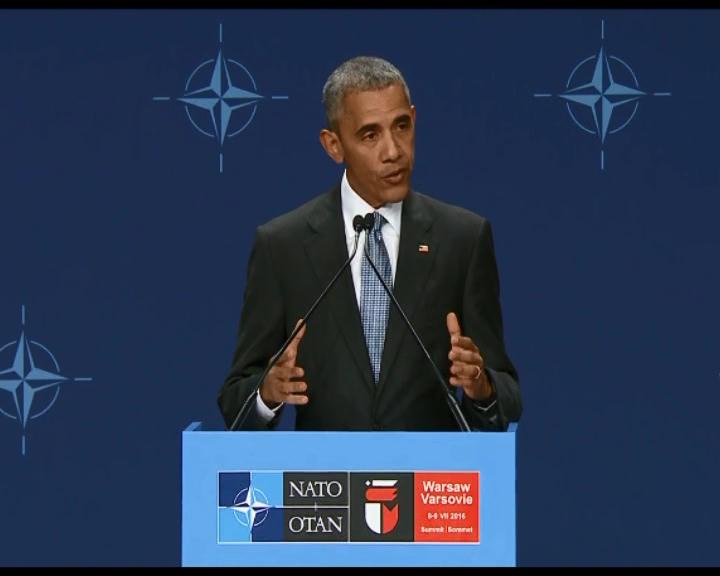Latest News
Obama stresses on financial assistances of donor countries to Afghanistan

President Barack Obama has considered the financial assistances of the donor countries to Afghanistan a strong message of enduring commitment.
President Obama’s final NATO summit wrapped up as a testament to stalled progress he sought on two fronts at his first alliance meeting seven years ago: a bolstered commitment to Afghanistan to allow the U.S. to wind down its role there, and the pursuit of “a constructive relationship with Russia,” as he put it in 2009.
Instead, the alliance is preparing for a mission in Afghanistan that will continue into a third decade, and its leaders detailed on Saturday an increased military presence in Eastern Europe in a bid to thwart continued Russian aggression.
” NATO will do more also to fight against terrorist networks. Every ally already contributes to the campaign against ISIL. Building on my decision to largely maintain the current U.S. troop presence in Afghanistan into next year, 39 nations, including the U.S., have committed more than 12,000 troops to NATO’s training mission. And, in addition, some 30 nations have pledged upwards of $900 million to help sustain Afghan forces which is a very strong message of our enduring commitment to Afghanistan.”
Afghan security forces will carry on fighting against the Taliban, Islamic State and other terrorist groups with the support of the international community’s train, advise and assist mission.
The president acknowledged that history will record him as the first to serve two full terms with the nation at war.
But because U.S. military operations in Iraq and Afghanistan have shifted from combat to training and assisting local forces against militant groups, they are “fundamentally different” from when he took office, Obama said. He acknowledged that against terrorist groups, the end of a conflict might not be as discrete as it once was, citing the example of Gen. Douglas MacArthur meeting with Japanese Emperor Hirohito at the end of World War II.
“Because they’re nonstate actors, it’s very hard for us ever to get the satisfaction of MacArthur and the emperor meeting and a war officially being over,” Obama said.
He did reiterate to Afghan President Ashraf Ghani that the U.S. was open to reconciliation talks with the Taliban, should the latter be open to returning to the negotiating table.
‘‘It was a clear message for the militants to lay down arms and join the peace process. Otherwise, the international community is committed to fighting them,’’ said Gen. Dawlat Waziri, spokesman for the Afghan Defense Ministry.
The support for the Afghan government would potentially affect the Taliban’s operational leadership. Waziri added, “The Taliban are losing hope as they learn that we are capable of fighting them.’’
The reality on the ground belied his optimism. The Taliban controls more territory in the country than it has since the U.S.-led invasion 15 years ago, according to U.N. estimates. And more than 5,500 Afghan troops were killed last year in combat with the Taliban that revealed significant shortcomings among Afghan security forces.

![OBAMA__10 _07_2016_DARI_SOT.mpg_snapshot_00.29_[2016.07.10_20.26.19]](https://ariananews.af/wp-content/uploads/2016/07/OBAMA__10-_07_2016_DARI_SOT.mpg_snapshot_00.29_2016.07.10_20.26.19-300x240.jpg)